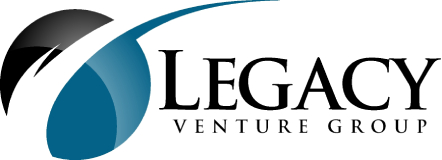
Calculate EBITDA and SDE for Roofing Companies

Confidentially Selling Your Roofing Business: Why SDE vs. EBITDA Matters and How a Roofing Business Broker Can Help
If you’re considering selling your roofing business, understanding the financial metrics that potential buyers evaluate is crucial to maximizing your sale price. Two primary metrics are often used to represent earnings: Seller’s Discretionary Earnings (SDE) and Earnings Before Interest, Taxes, Depreciation, and Amortization (EBITDA). Each of these measures provides a different perspective on your business’s profitability and will appeal to different types of buyers. Knowing when to use SDE versus EBITDA can make all the difference in attracting the right buyer and achieving the best sale outcome.
In this guide, we’ll explain the differences between SDE and EBITDA, examine data from roofing companies, and discuss why confidentiality is essential. Partnering with an experienced roofing business broker is essential in this process. A roofing business broker can help you maintain confidentiality, assess your business value accurately, and streamline the sale.
What is SDE and When Should You Use It?
Seller’s Discretionary Earnings (SDE) is a measure of the total financial benefit a business provides to its owner. SDE includes the business’s net profit, the owner’s salary, and discretionary expenses like personal benefits or one-time costs. This metric is typically used for small, owner-operated businesses, where the potential buyer is likely to take over day-to-day operations.
SDE is particularly relevant for roofing businesses where the owner is heavily involved in management. It gives buyers a realistic picture of the earnings they could expect if they replaced the current owner. However, SDE is less useful for buyers who are looking at the business as an investment, as it doesn’t reflect the potential cost of hiring professional management to replace the owner.
What is EBITDA and When Should You Use It?
Earnings Before Interest, Taxes, Depreciation, and Amortization (EBITDA) is another measure of a company’s profitability, but it offers a more standardized view. EBITDA excludes owner-specific expenses and focuses purely on operational profitability. This makes it appealing to investors who want a picture of the business’s performance without owner-specific adjustments.
EBITDA is useful for larger businesses or those with stable management in place, as it reflects the company’s core earnings potential. Investors or corporate buyers, who are less likely to be involved in daily operations, typically prioritize EBITDA when valuing a business.
SDE vs. EBITDA in Roofing Business Transactions
Below is a breakdown of recent transaction data for roofing companies, which demonstrates the application of SDE and EBITDA as valuation metrics. This data highlights the potential valuation ranges for roofing companies based on these metrics:
| Statistic | Transactions | Min | Max | Mean | Median | Variation |
|---|---|---|---|---|---|---|
| Sales Price | 12 | $303,425 | $5,040,000 | $2,746,785 | $2,984,920 | N/A |
| Annual Gross Revenue | 12 | $1,314,021 | $11,577,410 | $5,578,172 | $5,053,908 | N/A |
| Seller’s Disc. Earnings (SDE) | 12 | $170,523 | $1,422,550 | $824,848 | $940,568 | N/A |
| EBITDA | 12 | $95,523 | $1,237,000 | $705,413 | $827,450 | N/A |
| SDE % of Revenue | 12 | 9.29% | 28.05% | 16.51% | 15.20% | 0.35 |
| EBITDA % of Revenue | 12 | 7.07% | 24.44% | 13.60% | 13.43% | 0.38 |
| Multiple of Revenue | 12 | 0.23 | 0.86 | 0.50 | 0.45 | 0.41 |
| Multiple of SDE | 12 | 1.61 | 4.41 | 3.06 | 3.20 | 0.27 |
| Multiple of EBITDA | 12 | 2.15 | 4.87 | 3.70 | 3.83 | 0.19 |
This data provides valuable insights into how roofing companies are valued based on SDE and EBITDA. Let’s take a closer look at how these metrics affect the valuation:
- Sales Price: Roofing businesses in this sample sold for between $303,425 and $5,040,000, with an average (mean) sale price of $2,746,785 and a median of $2,984,920. This range reflects the diversity in business size, profitability, and market position within the roofing industry.
- SDE and EBITDA as a Percentage of Revenue: The SDE percentage of revenue ranges from 9.29% to 28.05%, with a mean of 16.51%, while EBITDA as a percentage of revenue ranges from 7.07% to 24.44%, with a mean of 13.60%. These percentages indicate how much of the business’s revenue translates into discretionary earnings for the owner or operational earnings, respectively.
- Multiples of SDE and EBITDA: The average multiple of SDE is 3.06, while the average multiple of EBITDA is 3.70. This reflects a common trend where EBITDA multiples tend to be higher than SDE multiples because EBITDA is viewed as a more standardized metric. For a roofing business with an SDE of $824,848, the estimated valuation based on SDE would be:
- Valuation (SDE): $824,848 × 3.06 = $2,523,041 Similarly, for a business with an EBITDA of $705,413, the estimated valuation based on EBITDA would be:
- Valuation (EBITDA): $705,413 × 3.70 = $2,610,029
These calculations illustrate how different multiples applied to SDE and EBITDA can result in varying valuations. The choice between using SDE and EBITDA depends on the buyer profile and the nature of the roofing business. A roofing business broker can help you determine the best metric to maximize your valuation and appeal to the right buyer.
Why Confidentiality Matters in Selling a Roofing Business
Selling a business is a delicate process, and confidentiality is crucial. If word gets out that your roofing business is for sale, it could lead to employee unrest, customer concerns, and even competitive threats. Working with a roofing business broker ensures that the sale process remains discreet and that sensitive information is only shared with serious, qualified buyers.
How a Roofing Business Broker Adds Value
- Confidential Marketing: A roofing business broker can confidentially market your business, presenting it only to pre-qualified buyers. They maintain control over who receives information and ensure that all interested parties sign nondisclosure agreements (NDAs) before accessing sensitive financial data.
- Valuation Expertise: With the help of tools like Free Quick Estimate and Business Value Score, a roofing business broker can provide an accurate valuation tailored to your business, factoring in both SDE and EBITDA to highlight different buyer perspectives.
- Guidance and Support: An experienced roofing business broker can offer valuable resources to guide you through the sale process. For example, check out these links for more insights:
- Targeted Buyer Identification: Roofing business brokers understand the market and can identify buyers who are a good fit for your business. This targeted approach can increase the chances of finding the right buyer who is willing to pay a premium for your roofing company.
- Expert Negotiation: When the time comes to negotiate, a roofing business broker has the expertise to secure the best possible terms for your sale. By maintaining control over the negotiation process, they ensure that confidentiality is protected, and the sale moves forward smoothly.
Resources for Roofing Business Owners Considering a Sale
If you’re thinking about selling your roofing business, here are additional resources to help you make informed decisions and prepare for the process:
- Show them the money: Understand how to demonstrate your business’s value to potential buyers.
- Excellent FREE E-Book: This e-book provides essential tips and insights for preparing a business for sale.
- Great Video: A helpful video guide on selling your business and maximizing its value.
- Seller Registration: Register your interest in selling with Legacy Venture Group, a leader in roofing business brokerage.
Conclusion
Deciding between SDE and EBITDA as the primary earnings measure is an important decision in the sale
